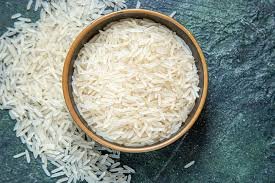India’s Basmati industry to see revenue grow 4% on a high base this fiscal: CRISIL Ratings
Policy changes to aid export volume growth; credit profiles to remain stable.
India’s basmati industry will see revenue growth moderate to 4 per cent on-year this fiscal from a phenomenal 20 per cent seen last fiscal. Despite the moderation, revenue will touch an all-time high at nearly Rs 70,000 crore, driven by policy support such as removal of minimum export price (MEP) and rising demand in both domestic and international markets. These tailwinds combined with likely fall in input costs will raise operating margins for players this fiscal.
Strong profitability will also result in minimal need of debt to fund capital expenditure and to replenish inventory, thereby keeping credit profiles stable. An analysis of 43 companies rated by CRISIL Ratings, which account for 45 per cent of overall Indian basmati industry by revenue, indicates as much.
The Government of India, on September 14, 2024, announced an immediate removal of MEP to support the export of basmati rice. The announcement, which follows adequate availability of basmati rice in domestic market, should help to enhance exports. To recall, MEP of $1,200 per tonne was imposed on basmati rice in August 20231 as a temporary measure in response to the rising domestic prices of rice. Following the removal of MEP, players will now be able to export basmati rice where realisation is lower than the MEP. That will help the Indian Basmati industry to cater to overseas markets in lower price segments, thus leading to higher volume.
“Exports, which form 72 per cent of basmati rice sales, are likely to grow 3-4 per cent on-year this fiscal as countries look to secure their food supplies amid geopolitical uncertainties. Domestic sales are likely to rise 6 per cent, driven by demand from the HoReCa (hotel, restaurant and café) segment, lower prices, and a steady rise in household income”, Nitin Kansal, Director, CRISIL Ratings.
Volume growth is expected to be 10 per cent (9 million tonne), which will be enough to offset a nearly 5 per cent fall in realisation and lead to an increase in the overall industry revenue. The fall in realization will be due to a decline in paddy prices, however, the fall will be limited owing to steady demand.
A steeper fall in input prices will raise operating margins of basmati rice manufacturers by 50-75 bps to ~6.7-7.0 per cent this fiscal. Paddy prices are expected to fall 10-12 per cent this fiscal because of a larger harvest expected owing to a normal monsoon, and an increase in sowing acreage.
The higher paddy output, lower procurement price and steady demand will encourage players to replenish their stocks, which had dropped to the lowest level (110-120 days) seen in past five years as demand outpaced procurement in the post-pandemic world. This re-stocking should cause the inventory to revert to the normative levels of 140-150 days by end of this fiscal. The rise in procurement will, however, crank up the working capital requirement.
Smriti Singh, Team Leader, CRISIL Ratings said, “Basmati rice companies are expected to increase their processing and packaging capacities by 10 per cent on-year this fiscal to meet the growing demand. Debt levels are seen stable as companies are expected to fund capex and increased procurement using healthy accrual flowing from higher revenue and profitability. That would lead to stable credit profiles.”
CRISIL Ratings expects gearing and interest coverage for its rated basmati rice companies at around 1.0 time and 4.5 times, respectively, this fiscal, compared with 0.9 time and 5.0 times, respectively, on average in the past three fiscals.
Policy changes to aid export volume growth;


